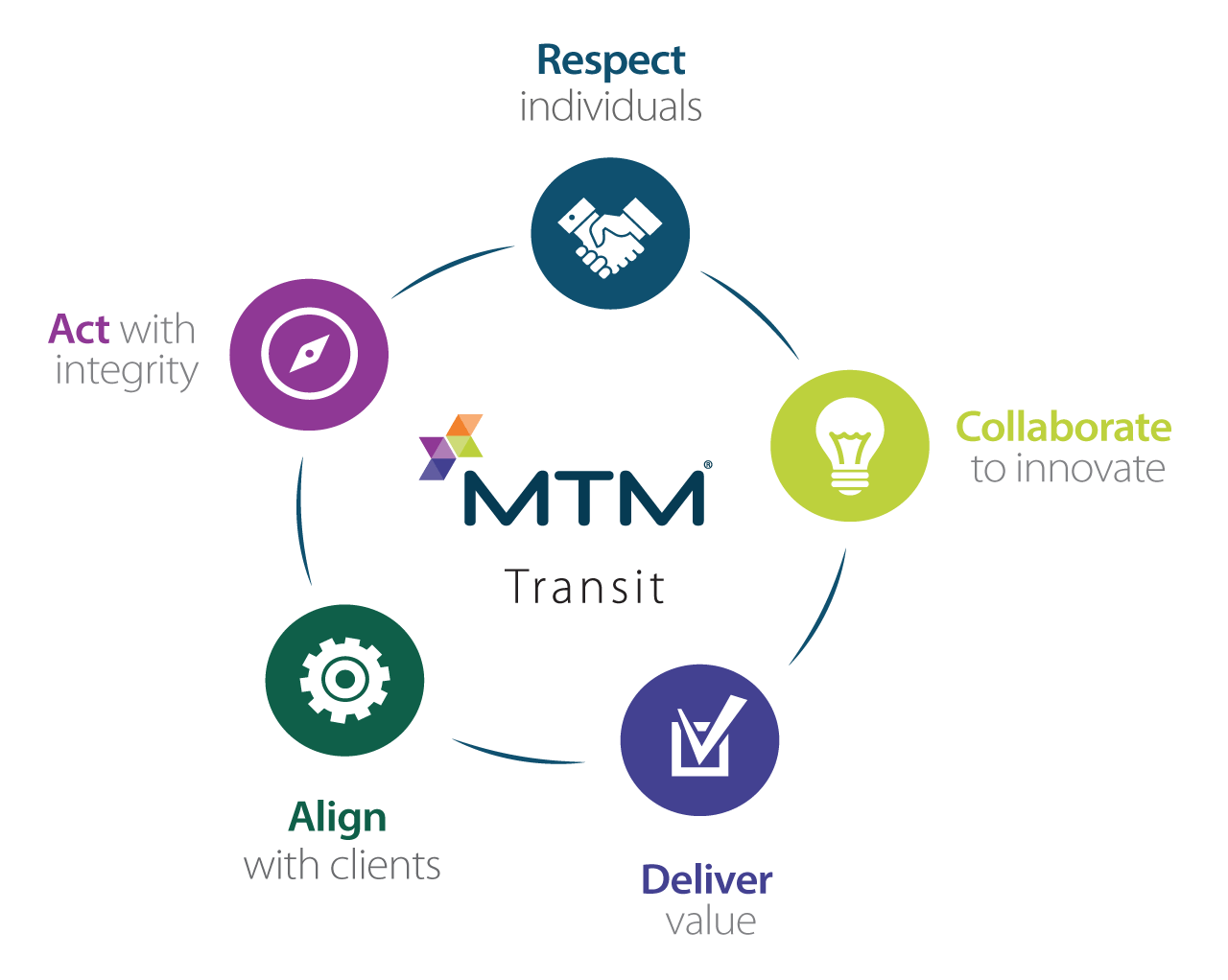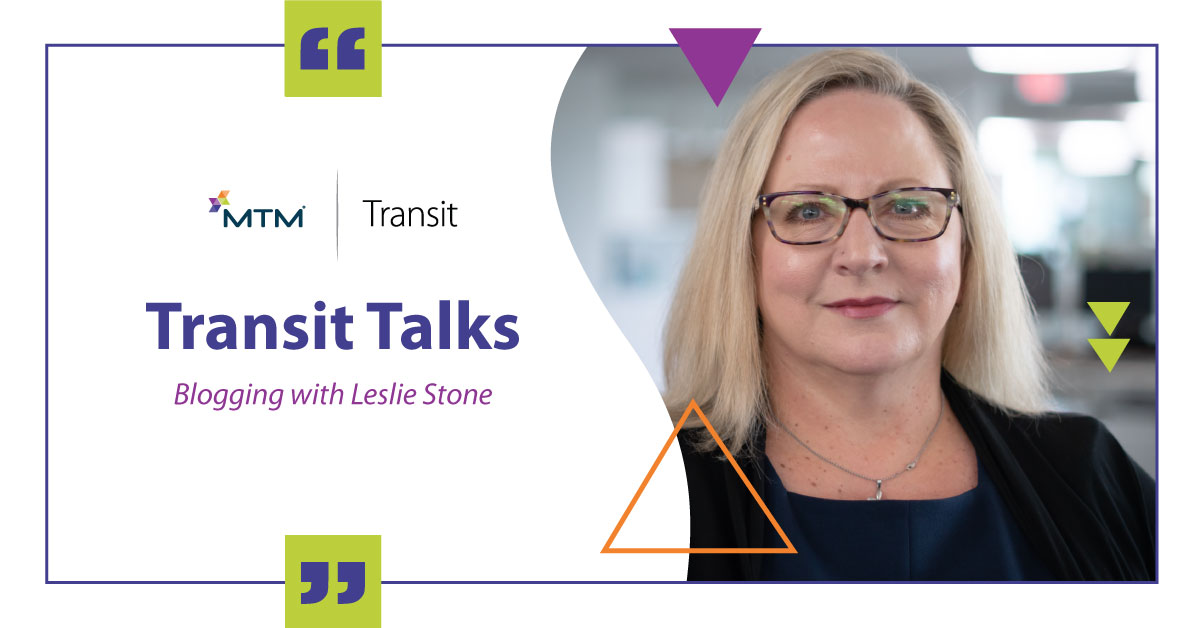Welcome back to Transit Talks, where we showcase MTM Transit’s leadership team as they discuss a variety of transit-related topics including sustainability, safety, expansions, and more! This quarter, our newest Regional Vice President Leslie Stone dives into the importance of Diversity, Equity, and Inclusion (DEI) at MTM Transit, and in the transit industry in general. Check out her reflections on DEI at MTM Transit!
The MTM Transit Welcome Committee
I was initially drawn to MTM Transit for two reasons: the focus on company culture and President and CEO Alaina Macia’s active leadership. I was thrilled to discover that MTM Transit is even more impressive on the inside than it appeared on the outside. There were so many welcoming people I was excited to work with and projects to get involved in. Everyone brings a unique perspective. This is why diversity and representation matter: multiple voices with varying viewpoints on different projects are the catalysts for growth and continuous improvement in an organization.
For employees, DEI is essential because it allows underrepresented individuals an opportunity for growth and advancement, and the chance to be heard. DEI can be highly beneficial for employers, as it provides a plethora of life experiences and perspectives that can aid in problem solving, which may not have been available otherwise.
According to a recent article from the Small Business Chronicles, “Stereotyping in the workplace is making assumptions about people based on a person’s gender or culture, or is based on religious or physical attributes. Although some stereotyping may be done innocently or in jest, the risk is hurting and creating a negative work environment.” You must step back and think about how stereotyping affects the workplace in order to understand and recognize the companies that go above and beyond to eliminate it.
Moving Away from the Stereotypes
At MTM Transit, DEI are non-negotiables in the culture. This is evident in our workforce and the exceptional results it produces. “Respect Individuals” is a core value; not an empty platitude. Every day, the company lives by our core values, making sure we stay a part of the work culture.

Our President and CEO Alaina Macia said it best: “[We] challenge and eliminate barriers that support inequities in our organization – and challenge our staff to challenge us when they see an inconsistency.” I reflect on this daily and remind myself to push back when seeing things aren’t the way we said they would be. I don’t know of another organization publicly issuing such a bold challenge. When I read these words, I am proud to call myself an MTM Transit employee. Pushing back against stereotypes helps us be inclusive and diverse by creating an empowering work atmosphere internally, and externally with our clients and passengers.
Representing Our Passengers
Our team members should be—and are—a representation of our passengers. It is imperative that our riders know that their opinions and concerns are valued by people who may share similar cultures and life experiences. The Nova Collection states. “Any company that wants to succeed in a modern and progressive business landscape stands to gain from a team that represents a range of races, religions, ages, ethnicities, genders, and more.” Representation in the workplace remains of utmost importance.
By being a voice for our passengers, drivers, and in-office employees, we ensure that they are heard. No one should feel minimized and unimportant, because every trip—and every passenger and teammate—is important.
Celebrating Diversity
“Celebrating” diversity is so much larger than “accepting” diversity because it is enlightening to encounter individuals with a lens that differs from our own. Celebrating diversity is a chance to explore different perspectives and expand our own. It allows us to question our beliefs and values and evaluate if they truly represent our own individuality.
By embracing diversity, we can become more complex versions of ourselves and share our insights with others. Each day, we have the potential to encounter individuals from a broad spectrum of socioeconomic background, ethnicities, cognitive and physical abilities, lifestyles and identities, and many other differentiators. Honoring and respecting differences opens a direct line of communication, minimizing misunderstandings and opening more doors to successful diversity in the workplace.


